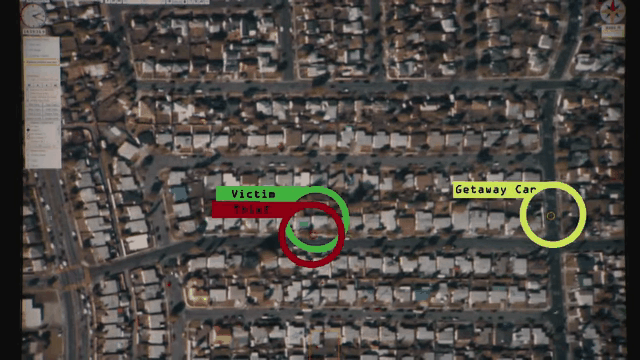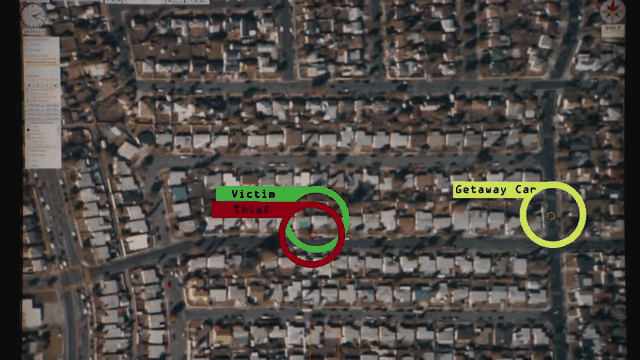Last year, police in the US began quietly testing a system that allowed them to do something incredible: watch every car and person in real time as they ebbed and flowed around the city. Every assault, every purse snatched, every car speeding away was on record — all thanks to a company that monitors cities from the air.
The Center for Investigative Reporting takes a look at a number of emerging surveillance technologies in a new video, but one in particular stands out: a wide-area surveillance system invented by Ross McNutt, a retired Air Force veteran who owns a company called Persistent Surveillance Systems.
McNutt describes his product as “a live version of Google Earth, only with TiVo capabilities,” which is intriguing but vague (and also sounds a lot like the plot of this terrible Denzel movie). More specifically, PSS outfits planes with an array of super high-resolution cameras that allow a pilot to record a 65 square kilometre patch of Earth constantly — for up to six hours.
It’s sort of similar to what your average satellite can do — except, in this case, you can rewind the video, zoom in, and follow specific people and cars as they move around the grid. It’s not specific enough to ID people by face, but, when used in unison with stoplight cameras and other on-the-ground video sources, it can identify suspects as they leave the scene of a crime.

The PSS system has been tested in cities including Baltimore and Dayton, and, last year, police officers in Compton used it to track crimes, including a necklace snatching. In one case, they could track a criminal as he approached a woman, grabbed her jewellery, and then ran to a getaway car. They eventually drove out of frame, which meant they weren’t caught — but, as the Compton police explain in this video, the system told them that this particular car was involved, at the very least.
Plenty of critics argue the technology is an ominous invasion of privacy: video surveillance free of any traditional technological barriers, tracking everyone and everything that moves in a city. But according to police and its creators, it’s not as invasive as other systems, because it can’t see into homes or identify faces. It “allows us to provide more security with less loss of privacy than any of the other options that are out there,” says one officer. That’s definitely one way to look at it. [Center for Investigative Reporting]
